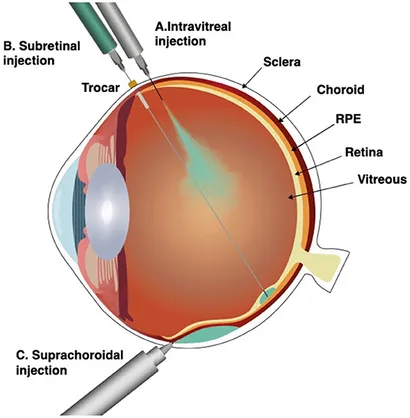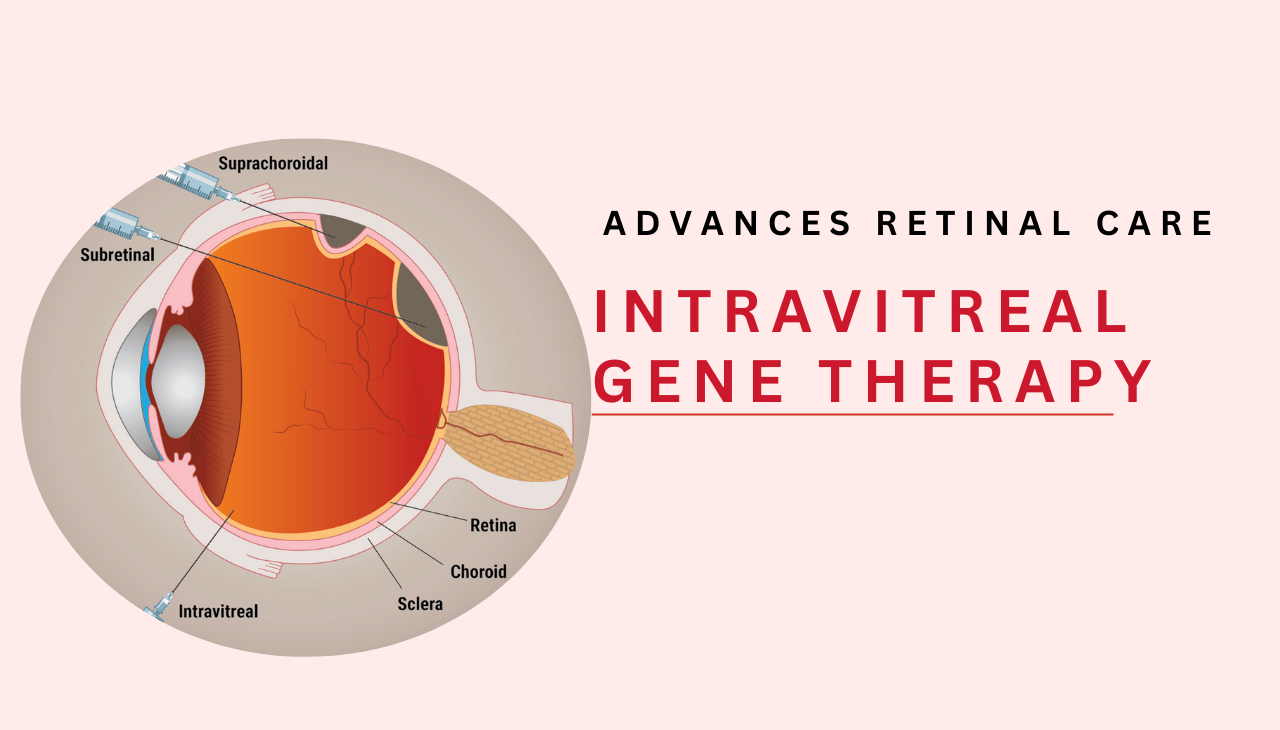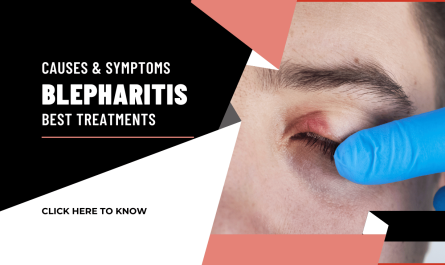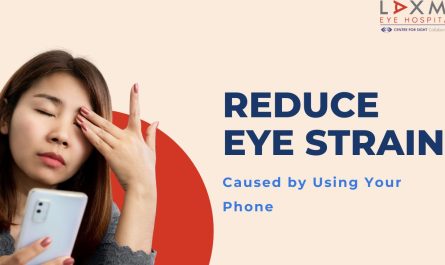Retinal diseases such as macular degeneration and inherited retinal disorders have long posed significant challenges in eye care. Traditional treatments often offer limited relief, especially in progressive or genetic cases. However, intravitreal gene therapy is revolutionizing how we approach retinal care, bringing new hope to patients at risk of losing vision.
In this blog, we’ll break down what intravitreal gene therapy is, why it’s a game-changer, common conditions it targets, how it works, and where you can seek expert care and consultation.
What is Intravitreal Gene Therapy?

Doctors inject therapeutic genes directly into the eye’s vitreous cavity through intravitreal gene therapy to correct or slow down retinal diseases at a genetic level.
Here are some key concepts:
- Gene Therapy involves modifying or replacing faulty genes with healthy ones to treat or prevent disease.
- Intravitreal Injection is a safe and targeted method of delivering medication or gene-based treatments directly into the eye.
- This therapy utilizes viral vectors, most commonly adeno-associated viruses (AAVs), which carry the corrected genetic code to the affected retinal cells.
- Doctors typically perform this procedure once under local anesthesia.
Unlike traditional treatments that only address symptoms, gene therapy tackles the root cause—genetic mutations—offering a long-term solution.
Conditions Treated by Intravitreal Gene Therapy
Several sight-threatening conditions can benefit from this cutting-edge approach:
1. Leber Congenital Amaurosis (LCA) and Retinitis Pigmentosa (RP)
These are inherited retinal dystrophies that cause gradual vision loss from childhood or early adulthood. Gene therapy can deliver functioning copies of faulty genes like RPE65 to slow or even reverse degeneration.
2. Age-Related Macular Degeneration (AMD)
Gene therapy now offers a more sustainable option for AMD by enabling the eye to produce anti-VEGF proteins over the long term, replacing the need for repeated anti-VEGF injections.
3. X-linked Retinoschisis and Choroideremia
These rare genetic disorders cause retinal layers to split or deteriorate. Targeted gene therapy aims to halt further damage and stabilize vision.
4. Diabetic Retinopathy and Retinal Vein Occlusion (RVO)
Research is underway to use gene therapy for these common conditions by regulating abnormal blood vessel growth.
How the Treatment Works: The Procedure & Recovery

Intravitreal gene therapy is a quick, outpatient procedure usually completed in 30–60 minutes:
- Patient Screening: A thorough genetic diagnosis and retinal imaging are done.
- Local Anesthesia: The eye is numbed using drops.
- Vector Delivery: A tiny needle is used to inject the gene vector into the vitreous cavity.
- Post-Procedure Monitoring: Patients are monitored for inflammation or immune reactions.
Recovery:
Most patients resume normal activities within a day or two. Vision improvements may take several weeks or months to become noticeable.
Risks and Side Effects:
Although rare, some patients may experience mild inflammation, floaters, or increased intraocular pressure. These are generally manageable with medications.
Future of Retinal Care: Expert Insights
- Durability: Unlike regular injections needed monthly or bi-monthly, gene therapy may provide sustained results for years.
- Precision Medicine: With advancements in genetic testing, treatments can be personalized to each patient’s genetic profile.
- Accessibility: As clinical trials progress and regulatory approvals increase, intravitreal gene therapies are expected to become more accessible in India.
Early intervention and correct diagnosis are key to the success of such therapies.
Consultation at Laxmi Eye Hospital
Laxmi Eye Hospital is one of Mumbai’s most trusted and advanced eye care institutions with over 30 years of service excellence. With state-of-the-art facilities and a team of highly qualified ophthalmologists, Laxmi offers expert care in:
- Specs Removal / LASIK: Bladeless LASIK, Contoura Vision, ICL, and IPCL
- Cataract Surgery
- Glaucoma Management
- Diabetic Retinopathy Treatment
- Cornea Clinic: Including Keratoconus and Corneal Transplants
- Retina Clinic: Advanced diagnostics and treatments for retinal diseases
- Pediatric Ophthalmology
📍 Clinic Locations:
- Dombivli: 1st Floor, SS Business Park, Gharda Circle, Dombivli East
- Kharghar: Anant CHS, Plot 31, Sector 4, Kharghar
- Panvel: Mulla Hamid Road, Old Panvel
- Kamothe: Near ICICI Bank, Sector 34, Kamothe
📞 To book an appointment, visit laxmieye.org or call the respective clinic.
FAQs
1. Is intravitreal gene therapy safe?
The FDA has approved it for certain retinal conditions, and it generally causes minimal side effects.
2. How long does the effect last?
In many cases, gene therapy offers long-lasting benefits, potentially eliminating the need for frequent treatments.
3. Is the treatment painful?
The doctor numbs the eye before the procedure, so you may feel slight pressure but not pain.
4. Who is eligible for gene therapy?
Patients must undergo genetic testing to determine if they carry specific mutations treatable by gene therapy.
5. What is the cost of intravitreal gene therapy?
Costs may vary depending on the treatment type and brand. Laxmi Eye Hospital provides guidance and support in understanding financial aspects.
6. Can children undergo this therapy?
Yes, especially in inherited retinal diseases that manifest early. Pediatric eye specialists will evaluate eligibility.
Conclusion
Intravitreal gene therapy represents a breakthrough in treating complex retinal conditions. By targeting diseases at the genetic level, this advanced treatment is paving the way for lasting visual improvements and hope for patients who once had limited options.
If you or a loved one is facing vision challenges, especially due to inherited or chronic retinal issues, consult the retina experts at Laxmi Eye Hospital. Early diagnosis and expert care can change the course of your eye health for the better.




